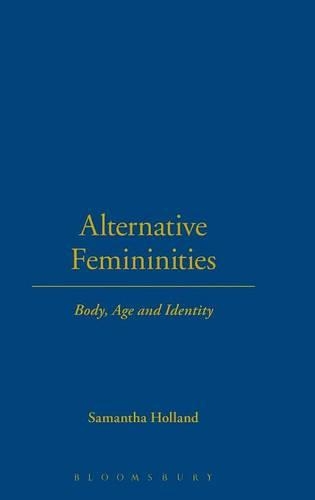
Alternative Femininities: Body, Age and Identity
(Hardback)
Available Formats
Publishing Details
Alternative Femininities: Body, Age and Identity
By (Author) Samantha Holland
Bloomsbury Publishing PLC
Berg Publishers
1st September 2010
United Kingdom
Classifications
General
Non Fiction
Gender studies: women and girls
305.42
Physical Properties
Hardback
256
Width 156mm, Height 234mm, Spine 19mm
Description
Imagine a world where the oppressive, over-feminized images of women from advertising, television, films, and magazines have re-armed themselves with army boots, body modifications, and flamboyant hair. Is this just another fairy tale, and if so, why can't it be a reality In Alternative Femininities, Samantha Holland unpacks the myth of model womanhood and considers how a particular group of real women define and practise 'femininity'. These women, who see themselves as 'alternative', modify and subvert popular images of femininity. The choices they make in clothing, appearance and body modifications enable them to construct a personal look that is intimately tied to self-identity. Getting the balance right between over-femininity and not being feminine enough is a frequently voiced concern. Holland also addresses head-on the much-neglected issue of how ageing impacts on notions of femininity. What do these women think about fashion, gender and appearance as they grow older and less visible in our media-dominated society Do they choose to tone down or stay 'out there', and what motivates their choice A revealing look at contemporary femininity, Alternative Femininities gives voice to a previously silent group of women who struggle to resist sexist gender stereotypes, yet age with style, individuality and creativity. By looking at how real women negotiate self-image in an increasingly appearance-conscious society, Holland has provided a much-needed corrective to theoretical accounts of gender and femininity lacking in real data.
Reviews
'This fascinating study explores the experiences of a group of women who adopt a consciously alternative style of dress; and in doing so it unpacks the complex and personal meanings of femininity as they are worked through at the level of body and clothes.' Julia Twigg, Ageing & Society (Journal)
Author Bio
Samantha Holland, Carnegie Research Institute, Leeds Metropolitan University
